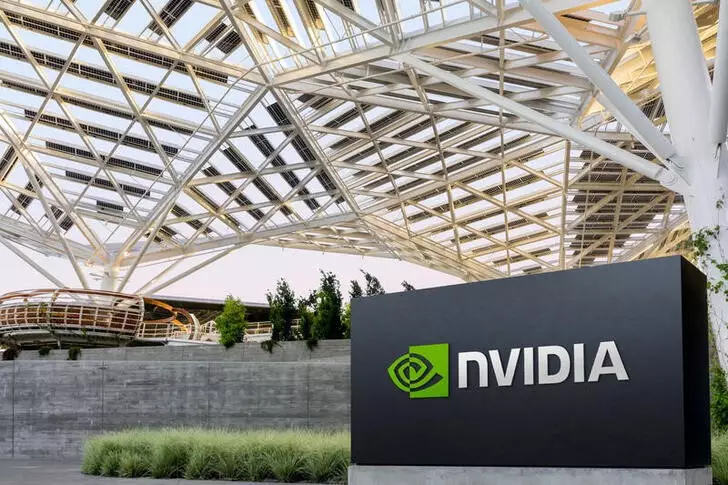In the escalating conflict between the United States and China, the latest development involves an investigation initiated by the Chinese government into Nvidia, one of the leading companies in the semiconductor industry. This probe, announced by the State Administration for Market Regulation (SAMR), has much broader implications that extend beyond Nvidia itself, echoing the sentiments of an ongoing trade war that is marked by retaliatory actions and tightening regulations within the technology sector.
At the heart of the inquiry is a suspected violation of China’s anti-monopoly laws, which raises questions about Nvidia’s competitive practices in the Chinese market. The SAMR has detailed that Nvidia is believed to have violated specific commitments made during its acquisition of the Israeli chip designer Mellanox Technologies. These commitments were crucial for securing approval for the merger in 2020 and included stipulations to ensure fair market practices.
The lack of specific details in SAMR’s announcement has left much to interpretation, creating an atmosphere of uncertainty. While clarity is needed, it is evident that the investigation serves as a direct countermeasure to recent U.S. restrictions on semiconductor exports to China. The geopolitical dynamics continue to shape regulatory frameworks in both countries, and such actions may reflect a need by the Chinese government to assert its authority and safeguard its domestic companies.
The timing of this investigation cannot be overlooked. The U.S. has escalated its measures against China’s semiconductor industry, encapsulating 140 companies in the latest restrictions. The response from China has been equally aggressive, initiating export bans on key minerals like gallium, germanium, and antimony. In this high-stakes game, technology has become both a tool for advancement and a weapon in economic warfare.
In reaction to the news, Nvidia’s stock experienced a decline, dropping by 2.5%. However, analysts suggest that the probe may have minimal immediate impact on Nvidia’s core business due to already existing restrictions that have limited its most advanced chip sales to China. Such analysis underscores the notion that Nvidia has been navigating a rapidly shifting landscape in international technology trade.
The investigation can be interpreted through the lens of retaliatory actions rather than a purely judicial process. China’s sentiment, reflected in statements from various industry associations, indicates a growing concern about relying on U.S. chip technologies, which they perceive as increasingly “unsafe.” There is a palpable urgency to encourage domestic sourcing of chips, hinting at a possible self-reliance strategy that may have long-term ramifications for U.S. companies operating in China.
Nvidia’s operations within China are particularly noteworthy, as the country accounted for about 17% of the company’s revenue in a fiscal year that ended in January, down from 26% two years prior. This decline indicates mounting competition faced by Nvidia from domestic players, notably Huawei, as well as the adverse effects of U.S. sanctions that have limited its ability to capitalize on growth in this lucrative market.
Through this lens, the Nvidia investigation is not merely an isolated incident but part of a broader saga involving U.S.-China relations and the quest for technological dominance. As American sanctions compel foreign companies to adapt their strategies, Chinese firms may seize this opportunity to fortify their positions in the market. This reshaping of the competitive landscape means that U.S. businesses could find it increasingly challenging to maintain their market shares in necessity sectors such as semiconductors.
Drawing parallels with previous high-profile investigations, such as Qualcomm’s anti-monopoly case in 2013, it becomes evident that China is not new to wielding regulatory power against foreign firms. However, the focus on a tech giant like Nvidia underscores a deepening divide that may only intensify over time.
China’s investigation into Nvidia showcases the complexities and ramifications of the geopolitical landscape of technology. As both nations seek to solidify their positions, companies like Nvidia will need to navigate a labyrinth of regulations and shifting allegiances. The inquiry may very well be a centerpiece in a broader narrative that defines the future of global technology and trade dynamics.

